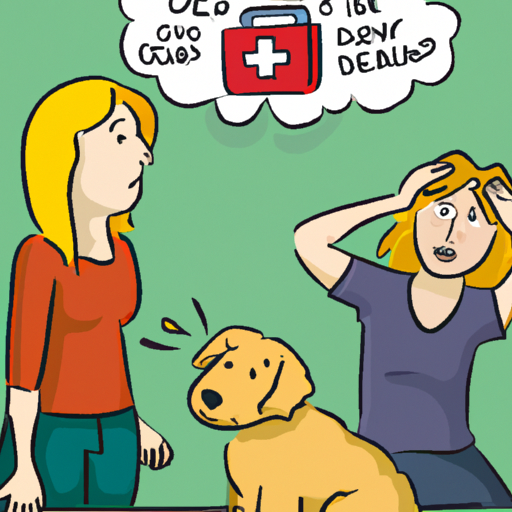As a caregiver, watching your beloved pet go through a seizure can be a heart-wrenching experience. This guide is here to arm you with the knowledge and tools necessary to help your dog during these challenging times.
H2: Understanding Dog Seizures
Seizures in dogs occur due to the sudden and uncontrolled firing of neurons in the brain. The signs can range from subtle, such as a momentary loss of balance, to severe, where the dog may fall to its side, lose consciousness, and convulse.
Common causes include:
- Epilepsy
- Liver disease
- Kidney failure
- Brain tumors
A table illustrating severity and symptoms might look like this:
| Severity | Symptoms |
|---|---|
| Mild | Momentary loss of balance |
| Severe | Falling to the side, convulsions, loss of consciousness |
H2: How to React During a Seizure
When your dog is having a seizure, your primary role is to ensure their safety and comfort. Here’s what you should do:
- Stay calm: Your dog needs you to remain composed during this stressful event.
- Clear the area: Remove any objects that might harm your dog during a convulsion.
- Do not restrain: Never try to hold down your dog during a seizure.
- Take note of time: Record the length of the seizure; this information is crucial for the vet.
H2: Post-Seizure Care
After a seizure, your dog may appear disoriented and could potentially be temporarily blind. Here’s how to help them recover:
- Provide a quiet and comfortable space: Lower the lights and reduce noise.
- Be patient: Give your dog time to regain their senses.
- Stay nearby: Your presence can provide comfort and reassurance.
H2: When to Seek Veterinary Help
If your dog’s seizure lasts longer than 5 minutes or they have multiple seizures within a 24-hour period, you should seek immediate veterinary attention. Other red flags include:
- Difficulty breathing
- Loss of bowel control
- Severe tremors
H2: Living with a Dog with Seizures
Living with a dog that has seizures requires patience, understanding, and a commitment to their wellbeing. Medication may be required, and regular check-ups will ensure the treatment plan is working.
Frequently Asked Questions (FAQs)
Q: Can a dog recover from a seizure on their own?
A: Yes, most seizures are self-limiting, but it’s crucial to consult a vet if your dog has had a seizure.
Q: Are seizures painful for dogs?
A: While seizures aren’t typically painful, they can cause distress and confusion.
Q: Can diet affect my dog’s seizures?
A: Yes, certain foods can trigger seizures. It’s best to discuss your dog’s diet with your vet.
Remember, you’re not alone in this journey. Reach out to your vet or local pet support groups for help and advice.



